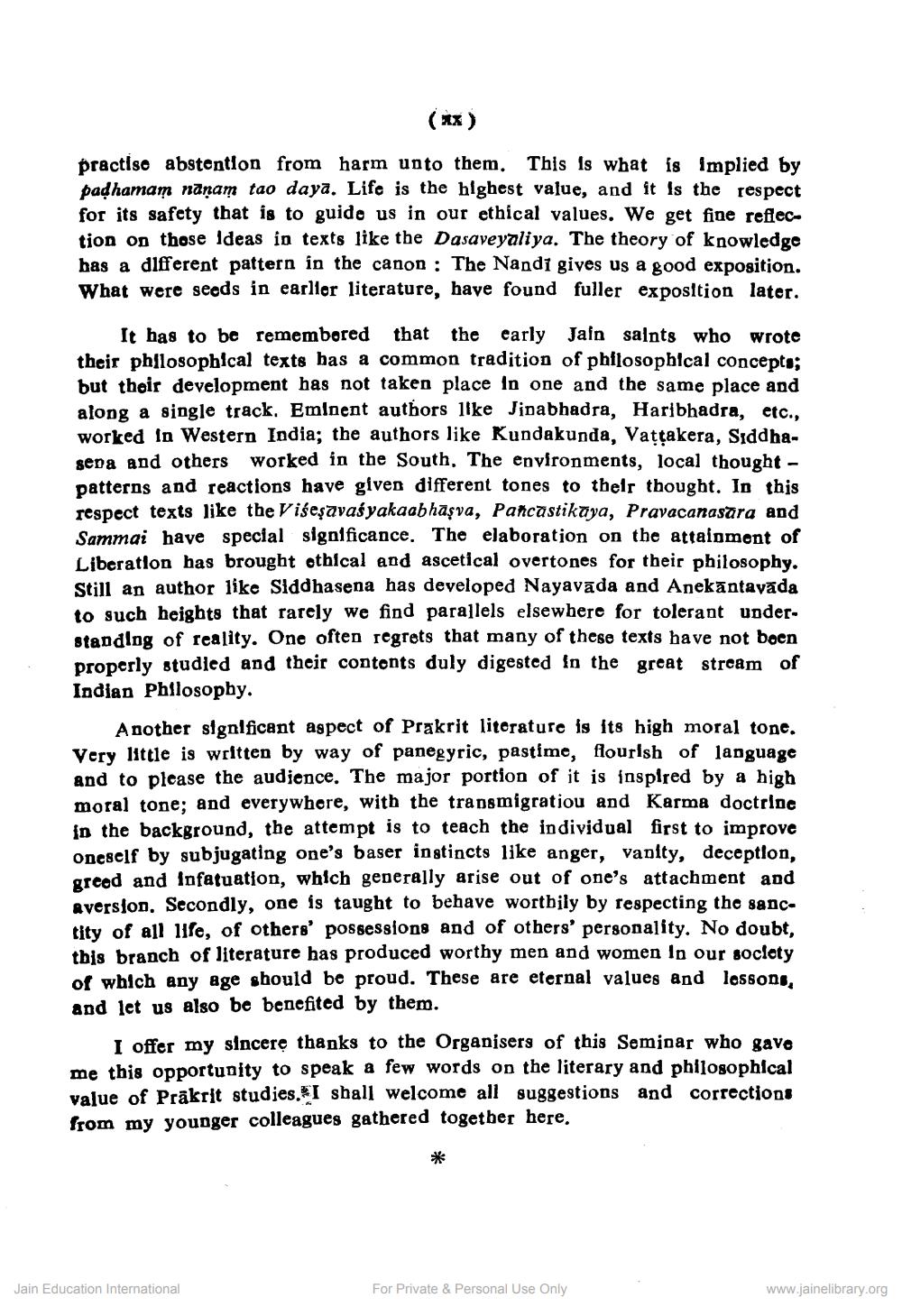________________
(xx)
practise abstention from harm unto them. This is what is implied by paḍhamam naṇam tao daya. Life is the highest value, and it is the respect for its safety that is to guide us in our ethical values. We get fine reflection on these ideas in texts like the Dasaveyaliya. The theory of knowledge has a different pattern in the canon: The Nandi gives us a good exposition. What were seeds in earlier literature, have found fuller exposition later.
It has to be remembered that the early Jain saints who wrote their philosophical texts has a common tradition of philosophical concepts; but their development has not taken place in one and the same place and along a single track. Eminent authors like Jinabhadra, Haribhadra, etc., worked in Western India; the authors like Kundakunda, Vaṭṭakera, Siddhasena and others worked in the South, The environments, local thoughtpatterns and reactions have given different tones to their thought. In this respect texts like the Visesavaśyakaabhāṣva, Pañcāstikāya, Pravacanasara and Sammai have special significance. The elaboration on the attainment of Liberation has brought ethical and ascetical overtones for their philosophy. Still an author like Siddhasena has developed Nayavada and Anekantavāda to such heights that rarely we find parallels elsewhere for tolerant understanding of reality. One often regrets that many of these texts have not been properly studied and their contents duly digested in the great stream of Indian Philosophy.
Another significant aspect of Prakrit literature is its high moral tone. Very little is written by way of panegyric, pastime, flourish of language and to please the audience. The major portion of it is inspired by a high moral tone; and everywhere, with the transmigratiou and Karma doctrine in the background, the attempt is to teach the individual first to improve oneself by subjugating one's baser instincts like anger, vanity, deception, greed and infatuation, which generally arise out of one's attachment and aversion. Secondly, one is taught to behave worthily by respecting the sanctity of all life, of others' possessions and of others' personality. No doubt, this branch of literature has produced worthy men and women In our society of which any age should be proud. These are eternal values and lessons, and let us also be benefited by them.
I offer my sincere thanks to the Organisers of this Seminar who gave me this opportunity to speak a few words on the literary and philosophical value of Prakrit studies. I shall welcome all suggestions and corrections from my younger colleagues gathered together here.
Jain Education International
-
*
For Private & Personal Use Only
www.jainelibrary.org




